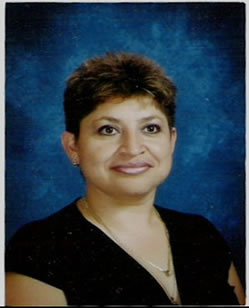









| > | E-Newsletter Archive | |
Mailman School
of Public Health
Columbia University
722 West 168th Street,
8th Floor
New York, NY 10032

|
|
 |
|
Rosa Rejon, Parent of three children  Who: Rosa Rejon, is a parent of three children, ages 8, 11 and 14, a teacher's assistant at Southwest Human Development and PTO President at What: FTG: Why did you get involved in community building as a FTG: What kinds of issues are important to you as a FTG: What have been some of your successes? FTG: What have been some of your challenges? FTG: Is it easy to bring the Latino community together? Rosa: I am not going to say it is easy. There are always issues such as scheduling, transportation and what I call the Latino necessity to work. It becomes very hard to coordinate schedules - when I am available, they are working and vice versa. The issue is not that the parents do not want to be involved but that we have to work around our schedules. We know this because we did a survey where parents asked us to hold meetings in the morning. So, we have been trying to meet and get things done early in the morning before work. Because we were able to respond, we now have parents who are more open to listen to new ideas. We encourage them to be part of the educational system because it is important. For example, parents are not aware of information because they do not visit the schools regularly. We encourage them to visit occasionally to talk to the teachers before they go to work. By getting involved, they will get information about resources. FTG: How have you brought them together? Rosa: It is a process that we start at the beginning of the year. First, we meet with parents to find out what they want to learn and are interested in hearing. Then, the other parents and I work together to prepare presentations on subjects they asked for. We typically send a flyer with the theme, the speaker and important information and it works. FTG: What would you share with other Latinos or other communities trying to involve Latinos in community building? Rosa: Be very persistent because it is hard work. Parents are working and have varying schedules. Sometimes, you will just want to give up. Remember that people do not always know how to find information or how to do things better. It seems they want us to beg and drag them to meetings. Sometimes we do, but we have them bring a friend, even if they do not have kids in school because what affects us now, will affect children to come. For further information, you can contact Rosa at 602-451-1881 or via email at Cledda22@msn.com |
|
Disclaimer Free To Grow is a national program supported by the Robert Wood Johnson Foundation and the Doris Duke Charitable Foundation with direction and technical assistance provided by the Mailman School of Public Health of Columbia University. |